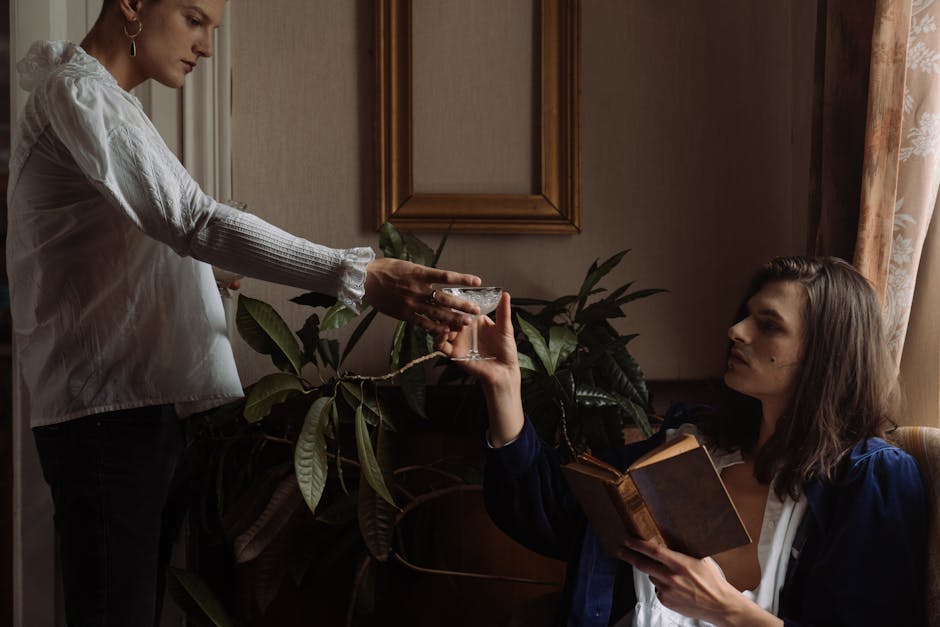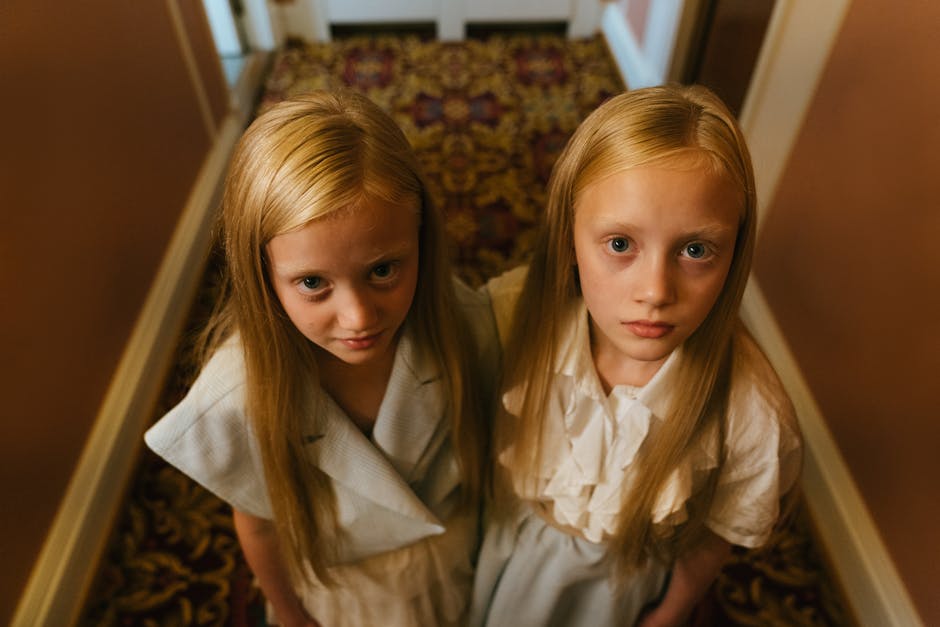## Poems That Have Allusion
Understanding the intricate tapestry of poems often requires delving deeper than just their literal words. These poems hold secrets, whispers of the past woven into their verses. Many poems utilize the power of allusion, drawing inspiration from myths, historical events, and other literary works. By recognizing these allusions, readers can unlock deeper layers of meaning and appreciate the poet’s masterful tapestry.
Each poem is a unique journey, drawing inspiration from a myriad of sources. Some poems might evoke ancient Greek mythology through echoes of Orpheus, while others might capture the grandeur of a bygone era through references to Roman senators. These literary echoes enrich the poems, adding depth and mystery to the words on the page.
Through the art of allusion, poets create connections with their audience, drawing them into their imaginary worlds. By recognizing these allusions, readers can participate in this shared literary heritage and experience the poet’s unique perspective in a more profound way.
35 Captivating Poems that have allusion.
Here are the poems:
The Echoes of Memories
In the depths of my mind, a labyrinth lies
Where shadows of the past, in darkness reside
The ghosts of loved ones, in whispers sigh
Echoes of memories, that never subside
Their footsteps, in the silence, I can hear
Their laughter, in the wind, I can feel
The ache of longing, that brings me to tears
For the moments we shared, and the love that’s real
Aurora’s Blush
As morning breaks, the sky is set aflame
With hues of crimson, and shades of rose
The stars, like diamonds, fade from sight
As dawn’s warm touch, the world, in light, bestows
The Melody of Silence
In the stillness, I hear a gentle song
A symphony of silence, that’s strong
The rustling leaves, a whispering choir
A lullaby of peace, that reaches my heart’s core
The world, in slumber, in quiet lies
Dreams, like shadows, dance, in closed eyes
The silence, a canvas, pure and white
A masterpiece of peace, in the morning light
The Phantom Ship
On the horizon, a vision appears
A ghostly vessel, through the misty peers
Its sails, like specters, billow in the wind
A haunting melody, that my heart can find
The Chronicles of Night
The stars, like sentinels, watch over me
As darkness weaves, its mysterious sea
The moon, a silver crescent, glows bright
A beacon in the night, that guides me through the fight
The shadows, like dark wings, enfold
A nocturnal world, where secrets are told
The wind, a whispered tale, that only few can hear
The chronicles of night, that only darkness can clear
The Painter’s Muse
With every stroke, a story unfolds
A tapestry of colors, young and old
The muse, a whispers, in the artist’s ear
A symphony of hues, that banish every fear
The canvas, a mirror, to the soul’s deep sea
A reflection of emotions, in harmony
The brushstrokes, a dance, of passion and of fire
The painter’s muse, a creation, that never tires
The Lost City’s Secret
In the heart of the jungle, where ancient stones decay
A hidden city sleeps, in a forgotten way
The trees, like sentinels, guard the hidden gate
A secret, hidden deep, in the city’s sacred state
The wind, a whispered tale, of a civilization old
A story of a people, with a history, yet untold
The ruins, a testament, to a glory, long past
The lost city’s secret, that only time will forecast
The River’s Lament
I flow, a winding path, through the heart of the land
A serpentine course, that’s forever at hand
The memories, of the past, I carry in my stream
A nostalgic echo, of a love, that’s yet to beam
The shores, a witness, to the seasons’ sway
A constant change, in a world, that’s gone astray
The waters, a reflection, of the soul’s dark night
The river’s lament, a melancholy, without a light
The Whispers of the Walls
In the silence, I hear the whispers low
A murmur of secrets, that only walls can know
The echoes of footsteps, that have long since fled
A haunting reminder, of the stories, yet unsaid
The shadows, a dark tapestry, that’s woven with care
A mysterious weave, of the whispers, that are shared
The walls, a keeper, of the memories of old
A guardian of secrets, that only silence can unfold
Enjoying these poems? You can also create your own poems with our Advanced AI Poem Generator.
Midnight Sun
In twilight’s hush, where shadows play
A lone sun rises to seize the day
A fleeting glance, a whispered sigh
As dawn awakens, the world goes by
The midnight sun, a beauty rare
A moment’s peace, beyond compare
Lost in the Stacks
In shelves that stretch towards the sky
A world of stories, whispers by
Tomes bound in leather, worn and old
Hold secrets, yet to be told
A dusty path, where feet may stray
Through pages yellowed, by time’s decay
And in the silence, I am found
Where knowledge sleeps, in a world around
The Library of the Mind
In chambers deep, where thoughts reside
A labyrinth of memories abide
Shelves that groan, with weight of years
Where echoes linger, of laughter and tears
A room of mirrors, where reflections play
And whispers of the past, echo away
In this library, I wander free
Through corridors of memory, where I be
In the Land of Forgotten Things
Where shadows dance, and dust does play
A world of relics, lost in gray
Forgotten dreams, and memories too
Echoes of love, and moments anew
The land of forgotten things, so still
A silence that, my heart doth fill
And in this land, I find my peace
Where memories, like ghosts, do cease
Whispers in the Dark
In darkness deep, where shadows roam
A voice whispers secrets, to the tone
Of midnight whispers, that only hear
The whispers of the heart, that dare not speak
A language hidden, yet to be told
A mystery that, only darkness holds
And in the whispers, I find my way
Through the darkness, to a brand new day
The Weight of Words
In pages worn, where sentences align
A story unfolds, of trials and decline
Of words that flow, like autumn’s rain
And memories, that love and pain
The weight of words, that on my heart
A burden heavy, that I impart
And in the silence, I find release
From the weight of words, that I release
The Wanderer’s Descent
As I walk through the autumn night,
The world around me whispers tales of old,
Of heroes fallen, and empires in flight,
The wind whispers secrets, fresh and bold.
I wander, lost, through the forest deep,
Where ancient tales of Greece their vigil keep,
Echoes of Icarus, and Prometheus’ might,
Taunting me to grasp the falling light.
In sorrow, I descend, into the gray,
Where tears of ancient heroes slowly gray,
And morning comes, with golden rays,
To sear the tears of those who weep through days.
Fata Morgana’s Mirage
In shimmering sands, where heat waves dance,
A sorceress weaves her wondrous trance,
Fata Morgana conjures walls,
And labyrinths, forever lost in halls.
She summons seas, frozen and blue,
And islands, floating high and new,
The siren’s call, that whispers low,
“Turn back now, and leave the magic to grow.”
But I, entranced, by moon’s pale glow,
Follow the paths, where ancient stones lie low,
Through cities, where forgotten ruins sleep,
And whispers secrets, that the silence keep.
In Camelot’s Courts
In Camelot’s courts, where thrones are green,
Where wisdom whispers secrets unseen,
Where Lancelot’s heart beats with true love,
And Guinevere’s smile, in beauty rouse.
The Round Table, shining bright as gold,
Where valor and honor, tales unfold,
Like Parsifal’s quest, to find the Holy Grail,
A journey, fraught with trials and fail.
But wisdom whispers, “Do not despair”,
For in the Round Table, love and honor share,
And though the knight slumbers, still and pale,
The legend lives, where honor prevail.
The Library of Alexandria
In halls of scrolls, where learning reigns,
In Alexandria’s library, where wisdom sustains,
Scribes inscribe with hands so fine,
The stories of yore, like emeralds in a vine.
Through columns strong, where statues stand,
The whispers of the past, across the land,
Where Aristotle’s eye, upon the stars,
And Archimedes’ mind, in calculations swarm.
Fragments of truth, like shards of shards,
In mystery, lost, in ancient yards,
Yet whispers whisper, of secrets yet untold,
In crypts, where scrolls, with truths, unfold.
The Ouroboros and the Lyre
On wings of night, when shadows dance,
And stars tremble, with the lyre’s sweet trance,
Ouroboros, the snake devours its tail,
A cycle born, in endless gale,
The wheel of time, where threads are spun,
Where stars and mortals, bound, forever begun,
The harmony, of music, born of fire,
A cosmic dance, of endless desire,
In sacred geometry, the numbers roll:
Seeds of knowledge, hidden, yet untold.
Allusion to the Ancient
In halls of ancient Athens, where Plato spoke,
A timeless wisdom yet in shadows cloaked.
I hear the echoes of his dialogues
Resound in every question and response.
Through Socratic methods, truth is sought
By probing questions that reveal our thoughts
And lay bare assumptions on which they are built,
Until unmasked, those biases might be righted.
Jane’s Ghostly Guest
As I sat down to pen a humble verse,
My quill was seized by unseen hands,
That scrawled upon parchment what they willed,
Likewise, Milton’s daughter once in thrall.
I marveled at such spectral artistry,
In awe of this unearthly muse,
Who whispered tales of love and loss,
Echoing the voice of Jane’s mysterious guest.
A Muse from Hyperion
I called upon the radiant Helios,
God of the Sun and harbinger of truth,
Descendant of Uranus and Gaia,
To guide my fingers in their course.
Yet, as I sought his heavenly aid,
A spectral figure shrouded in mist
Appeared before me, softly spoke:
“I am Keats’ bright muse from Hyperion.”
The Shadow of a Canterbury Tale
Upon a pilgrimage I set forth,
In shadow of Chaucer’s tales of yore,
Seeking solace in their timeworn pages,
Where sinners and saints are intertwined.
Through fields and forests, towns and shires,
I passed, my heart ensnared by verse,
As voices long-silent called out still,
Amidst the hallowed halls of Canterbury.
An Ode to Dante’s Path
Oh, wanderer wretched and alone,
Whose heart is heavy with life’s burdens,
Take solace in Dante’s path divine,
That crosses Hell, ascends through Purgatory.
Find light within the darkest abyss,
As he did, when surrounded by demons,
And climb the sacred peaks of righteousness,
Guided by Virgil’s wisdom in your climb.
Shadows of the Bronte Sisters
Upon a moor shrouded in mist,
I wandered, like Cathy and Heathcliff lost,
Haunted by the specters of Wuthering Heights,
And visions of a love that knows no bounds.
Around me swirled the echoes of their cries,
Like whispers from the hearts of Jane and Rochester,
Their voices mingling with those of Emily and Anne,
Till all became one in the shadows cast.
Homage to Keats’ Urn
Ode on a Grecian Urn, thy praise I sing,
Eternal symbol of love’s enduring power!
Thou containest stories, secrets untold,
Immortalized in clay by art’s divine hand.
In thee, a shepherd pipes sweet melodies,
Enticing lovers who shall never embrace,
As time’s cruel scythe cuts all that lives,
Thou remainest unchanged, bearing witness.
On Wilde’s Picture of Dorian Gray
Would that I might possess a portrait fair,
That bears the marks of age and vice,
While I, untouched by time’s relentless march,
Remain forever young, eternal and unmarred.
Like Dorian Gray, ensnared by devil’s art,
Envious of immortality’s fleeting grasp,
So covetous am I, ever seeking youth,
In vain pursuit of that which cannot last.
Best Popular Poems About “Poems that have allusion”
“The Waste Land” by T.S. Eliot
This modernist masterpiece is denser than a black hole when it comes to allusions. Eliot weaves together references to Shakespeare, Dante, and mythological figures to create a sense of disillusionment and spiritual decay. The poem’s fragmented structure and stream-of-consciousness style mirror the chaos of modern life, while allusions to ancient myths and legends underscore the sense of disconnection from the past.
“The Love Song of J. Alfred Prufrock” by T.S. Eliot
Eliot’s iconic poem is a prime example of allusive poetry. The titular character’s inner monologue is peppered with references to Hamlet, Shakespearean sonnets, and Dante’s Inferno, among others. These allusions serve to underscore Prufrock’s own feelings of inadequacy and fragmentation, as he struggles to express himself amidst the echoes of literary and cultural heritage.
“Ode to a Nightingale” by John Keats
Keats’ Ode is a beautiful example of allusive poetry, drawing heavily from classical mythology and literature. The nightingale’s song is likened to the mournful cries of Ruth and the abandoned Ariadne, underscoring the transience of human life and the allure of escape into the world of art.
“Do Not Go Gentle into That Good Night” by Dylan Thomas
Thomas’ villanelle is a passionate cry against the inevitability of death, with allusions to the Bible, Shakespeare, and Welsh folklore. The repetitive refrain, “Do not go gentle into that good night,” becomes a rallying cry against the darkness, as the speaker urges his father to rage against the dying of the light.
“The Raven” by Edgar Allan Poe
Poe’s spooky masterpiece is a cornucopia of allusions, drawing from mythology, folklore, and literature. The raven’s repetition of “Nevermore” echoes the doomed lover’s cries in Shakespeare’s Macbeth, while the poem’s atmosphere of Gothic horror is reminiscent of earlier Gothic writers like Walpole and Radcliffe.
“The Lady of Shalott” by Alfred, Lord Tennyson
Tennyson’s poem is a beautifully wrought tale of doomed love, drawing heavily from Arthurian legend and medieval mythology. The Lady of Shalott’s fate is mirrored in the curse of the gods, as she is forced to weave a deadly tapestry that foretells her own demise.
“The Song of Hiawatha” by Henry Wadsworth Longfellow
Longfellow’s epic poem is a sweeping narrative that draws from Native American mythology and folklore. The titular Hiawatha is a hero of the Ojibwe people, and the poem is full of allusions to the natural world, the spirit realm, and the legends of the indigenous peoples.
“Kubla Khan” by Samuel Taylor Coleridge
Coleridge’s hypnotic poem is a fragmentary and allusive work, drawing from mythology, history, and literature. The poem’s dreamlike atmosphere is evocative of the fantastical world of the Arabian Nights, while the titular Kubla Khan is a symbol of power and excess.
“The Eve of St. Agnes” by John Keats
Keats’ poem is a sensual and dreamlike tale of love and enchantment, drawing heavily from medieval mythology and folklore. The poem’s use of allusion creates a sense of historical depth, as the titular St. Agnes’ Eve is a time of supernatural possibility and romantic possibility.
“Ulysses” by Alfred, Lord Tennyson
Tennyson’s poem is a masterpiece of allusive poetry, drawing from Homer’s Odyssey and Shakespeare’s King Lear. The titular Ulysses is a symbol of aged wisdom and stoicism, as he considers his own mortality and the fleeting nature of human achievement.
Understanding Allusion in Poetry
Allusion is a literary device that poets use to make a reference to a person, place, event, or another work of literature. These references are often indirect and require the reader to have prior knowledge of the subject being alluded to in order to fully understand the meaning of the poem. Allusions can add depth and complexity to a poem, allowing the poet to convey multiple layers of meaning with just a few words.
The Purpose of Allusion in Poetry
Allusions can serve a variety of purposes in poetry. They can be used to establish a tone or mood, create a sense of familiarity or nostalgia, or make a political or social commentary. By alluding to well-known myths, historical events, or other works of literature, poets can tap into a shared cultural knowledge and create a deeper connection with their readers. Additionally, allusions can be used to add nuance and ambiguity to a poem, allowing the reader to interpret the meaning in their own way.
Examples of Allusion in Poetry
Allusions can be found in poetry from all eras and cultures. Here are a few examples:
-
“The Waste Land” by T.S. Eliot is filled with allusions to classical mythology, the Bible, and other works of literature. The poem’s title is a reference to the Arthurian legend of the Fisher King, who rules over a wasteland brought about by his own sterility and the withdrawal of the Holy Grail. Eliot uses this allusion to comment on the spiritual and cultural decay of modern society.
-
“Ode to a Nightingale” by John Keats contains allusions to Greek mythology and the works of other Romantic poets. The nightingale, a symbol of poetic inspiration, is compared to the mythological figure of Procne, who was transformed into a nightingale after her son was killed by her husband. Keats also alludes to the works of his contemporaries, such as William Wordsworth and Percy Bysshe Shelley, to position himself within the Romantic literary tradition.
-
“When I Have Fears” by John Keats contains allusions to the works of other poets, such as William Shakespeare and Edmund Spenser. The poem’s title is a reference to Shakespeare’s Sonnet 18, which begins “Shall I compare thee to a summer’s day?” Keats uses this allusion to explore the relationship between the mortality of the poet and the immortality of poetry.
Interpreting Allusions in Poetry
Interpreting allusions in poetry can be a challenging task, as they often require a deep understanding of the subject being alluded to. However, there are a few strategies that readers can use to help them interpret allusions in poetry:
-
Research the subject being alluded to. This can help readers gain a better understanding of the allusion and its significance within the poem.
-
Consider the context in which the allusion is used. The tone, mood, and overall theme of the poem can provide clues as to the meaning of the allusion.
-
Think about the poet’s intentions. What is the poet trying to convey through the allusion? Is it meant to be a subtle reference, or a more obvious commentary?
-
Keep an open mind. Allusions can be interpreted in multiple ways, and there is often no one “correct” interpretation.
Conclusion
Allusion is a powerful literary device that poets use to add depth and complexity to their work. By alluding to well-known myths, historical events, and other works of literature, poets can tap into a shared cultural knowledge and create a deeper connection with their readers. However, interpreting allusions can be a challenging task, and readers must be willing to do the research and consider the context in order to fully understand the meaning of the poem.



